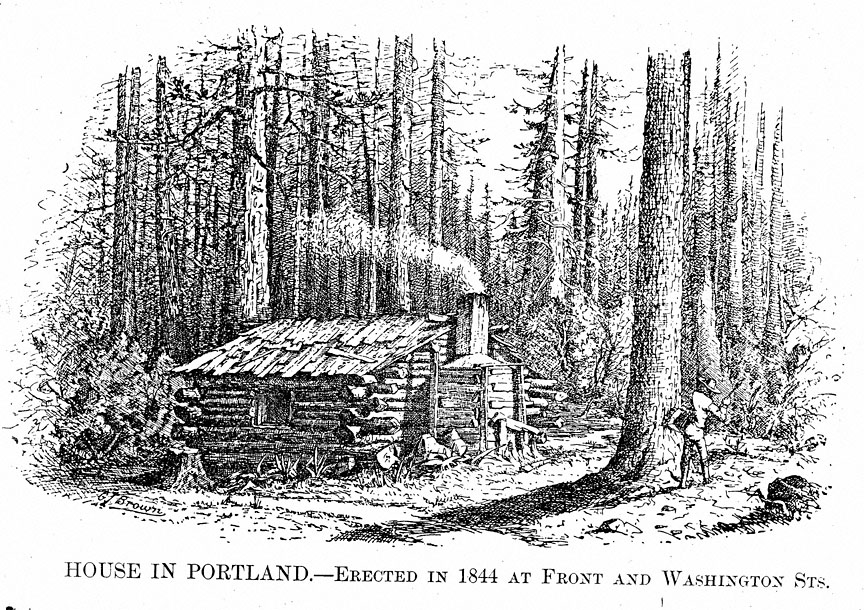- Catalog No. —
- OrHi 955
- Date —
- 1844
- Era —
- 1792-1845 (Early Exploration, Fur Trade, Missionaries, and Settlement)
- Themes —
- Geography and Places
- Credits —
- Oregon Historical Society
- Regions —
- Portland Metropolitan
- Author —
- G.J. Brown
Overton Cabin
One of the first dwellings in Portland, this cabin was named for William Overton. In late 1843, Native American guides took Overton and his companion, Asa Lovejoy, to “the clearing,” where the guides stopped the canoe for a noonday break. Overton suggested that the clearing, in-between Fort Vancouver and Oregon City might make a good settlement. Lovejoy, a lawyer, agreed to pay the twenty-five cent fee to file a claim with the provisional government in exchange for half the 640 acres they believed would be available soon to each immigrant.
Little is known of Overton, who was something of a drifter. In the spring of 1844, he sold his 320 acres to Oregon City shopkeeper, Francis Pettygrove, for about fifty dollars, probably paid in provisions. This was the first of several early transactions involving the townsite tract, some of which resulted in such confusion that disputed ownership issues had to be resolved in court. Overton headed for the Southwest, while an employee of Pettygrove and Lovejoy built and lived in the cabin that bore Overton’s name.
Pettygrove and Lovejoy “snapped a copper” — flipped a coin — to decide the settlement’s name. Both men were from New England, and each favored the name of a town from his home state. Pettygrove was from Maine and preferred Portland. Lovejoy favored the name Boston.
Written by Trudy Flores, Sarah Griffith, © Oregon Historical Society, 2002.
